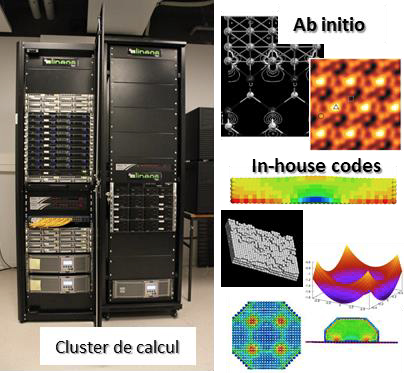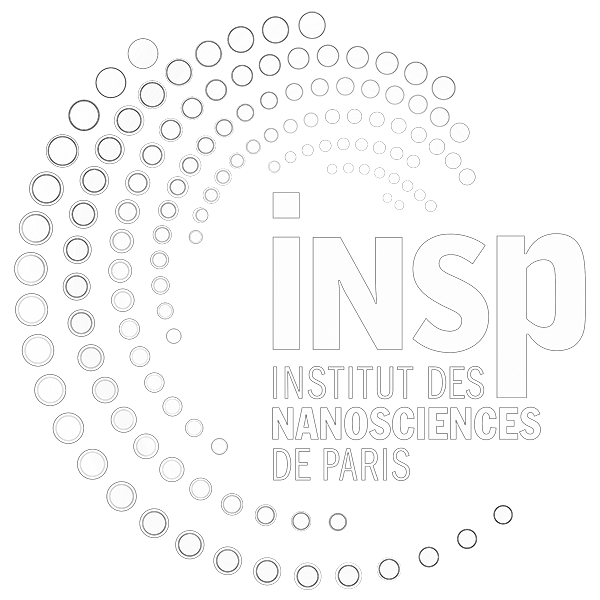Semi-empirical and ab initio type atomic calculations, based on density functional theory or Hartree-Fock are combined with molecular dynamics, global optimisation and kinetic Monte-Carlo. One specificity of the theoretical approach of the group is to make the bridge between numerical results and theoretical models; data from numerical calculations (equilibrium shape and energetics, electronic structures, vibrational properties, kinetics of reaction…) are supplemented and generalised with simple “models” that are able to put forward the relevant parameters and trends that can be generalised towards other systems. One of the most iconic example is the study of the polarity effects of oxide surfaces, thin films and then in nano-objects.
As much as possible, a dialog is established with the experimenters of the group and of other universities. Several convergences between experiments and theory are at our credit in specific cases such as the link between equilibrium shape and stress in nano-objects, the adhesion at metal/oxide interface or the hydroxylation of surfaces. General concepts that may help experimenters to foresee physical properties of a large class of systems as a function of their main characteristics have been developed in the past. Some examples in this direction can be found in the effects of polarity, the structure of alumina or magnesia supported films or the epitaxial growth. This approach continues today on questions of mixed oxides and alloys of oxides.
The theoreticians use existing ab initio codes (VASP, ABINIT, Quantum Expresso) and improve them by implementing new functionalities or concepts (nuclear quantum effects). To deal with the physical properties of large scale systems, they also develop semi-empirical tools such as the molecular dynamics adjusted on ab initio calculations (MDSUP) or quantum codes of Hartree-Fock type (PHAST). Besides national computer facilities, they have a local cluster of 40 nodes.

Contact
- Fabio Finocchi: fabio.finocchi(at)insp.jussieu.fr
- Jacek Goniakowski: jacek.goniakowsk(at)insp.jussieu.fr
- Simon Huppert: simon.huppert(at)insp.jussieu.fr

